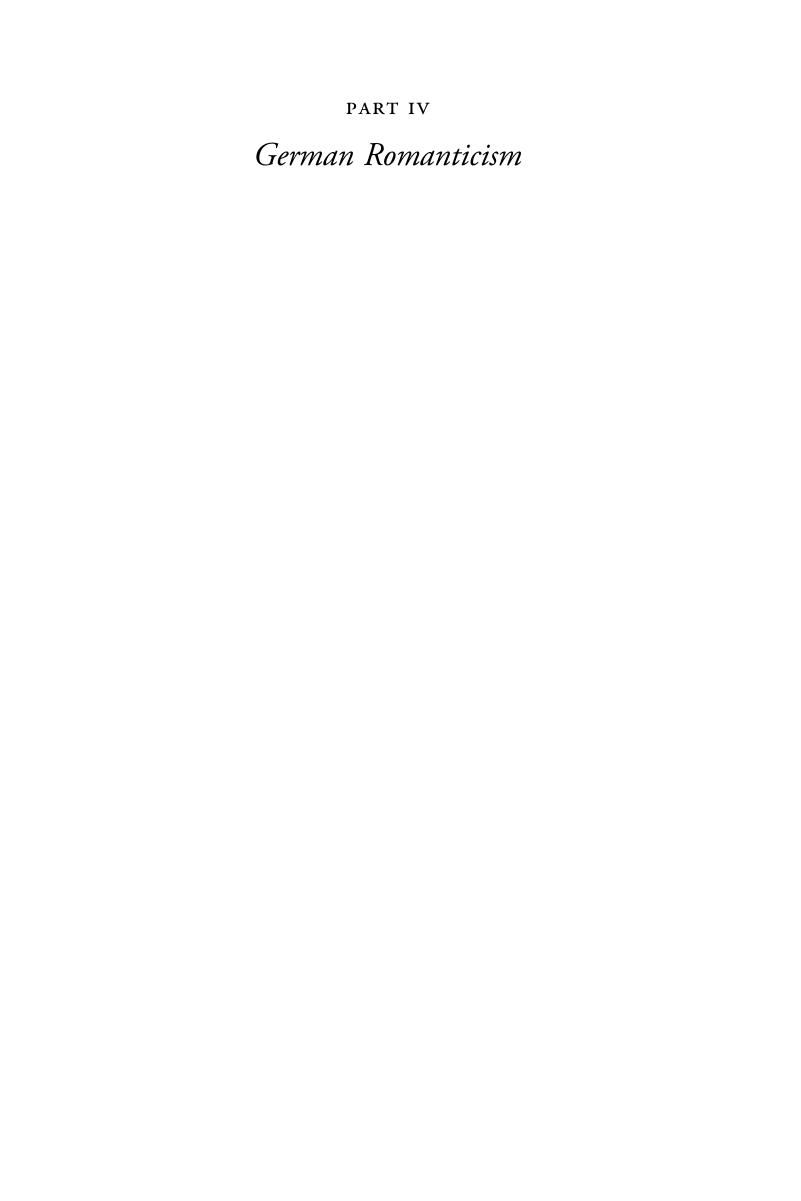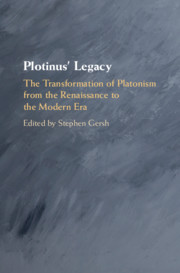Book contents
- Plotinus’ Legacy
- Plotinus’ Legacy
- Copyright page
- Contents
- Contributors
- Introduction
- Part I The Italian Renaissance
- Part II Sixteenth-Century France
- Part III The “Cambridge Platonists”
- Part IV German Romanticism
- Part V The Twentieth and Twenty-First Centuries
- Appendix: Chronology of Editions and Translations of Plotinus1
- Index
- References
Part IV - German Romanticism
Published online by Cambridge University Press: 05 April 2019
- Plotinus’ Legacy
- Plotinus’ Legacy
- Copyright page
- Contents
- Contributors
- Introduction
- Part I The Italian Renaissance
- Part II Sixteenth-Century France
- Part III The “Cambridge Platonists”
- Part IV German Romanticism
- Part V The Twentieth and Twenty-First Centuries
- Appendix: Chronology of Editions and Translations of Plotinus1
- Index
- References
Summary

- Type
- Chapter
- Information
- Plotinus' LegacyThe Transformation of Platonism from the Renaissance to the Modern Era, pp. 181 - 230Publisher: Cambridge University PressPrint publication year: 2019



